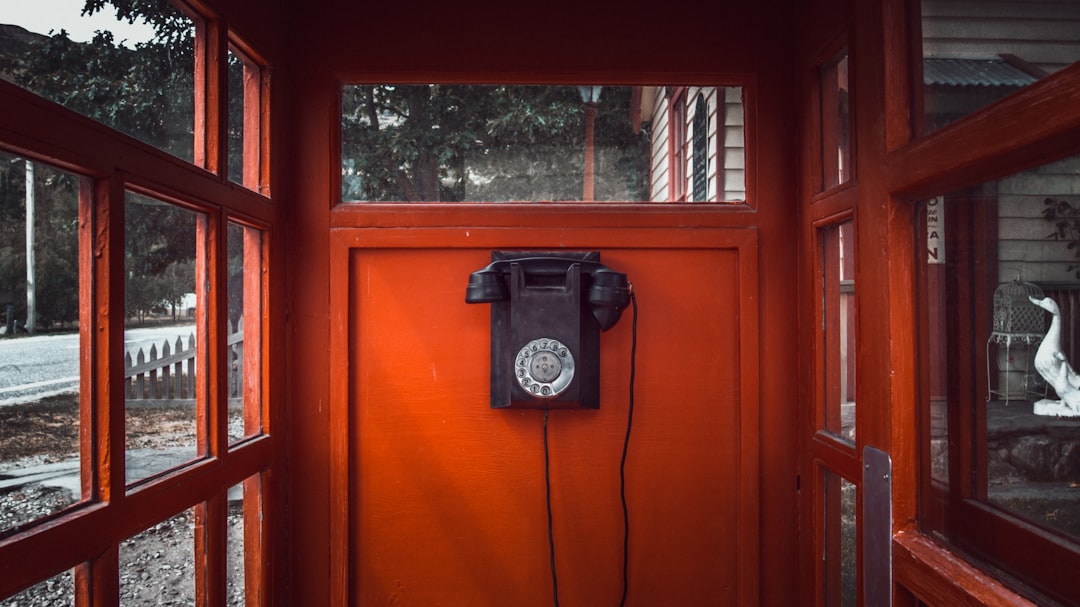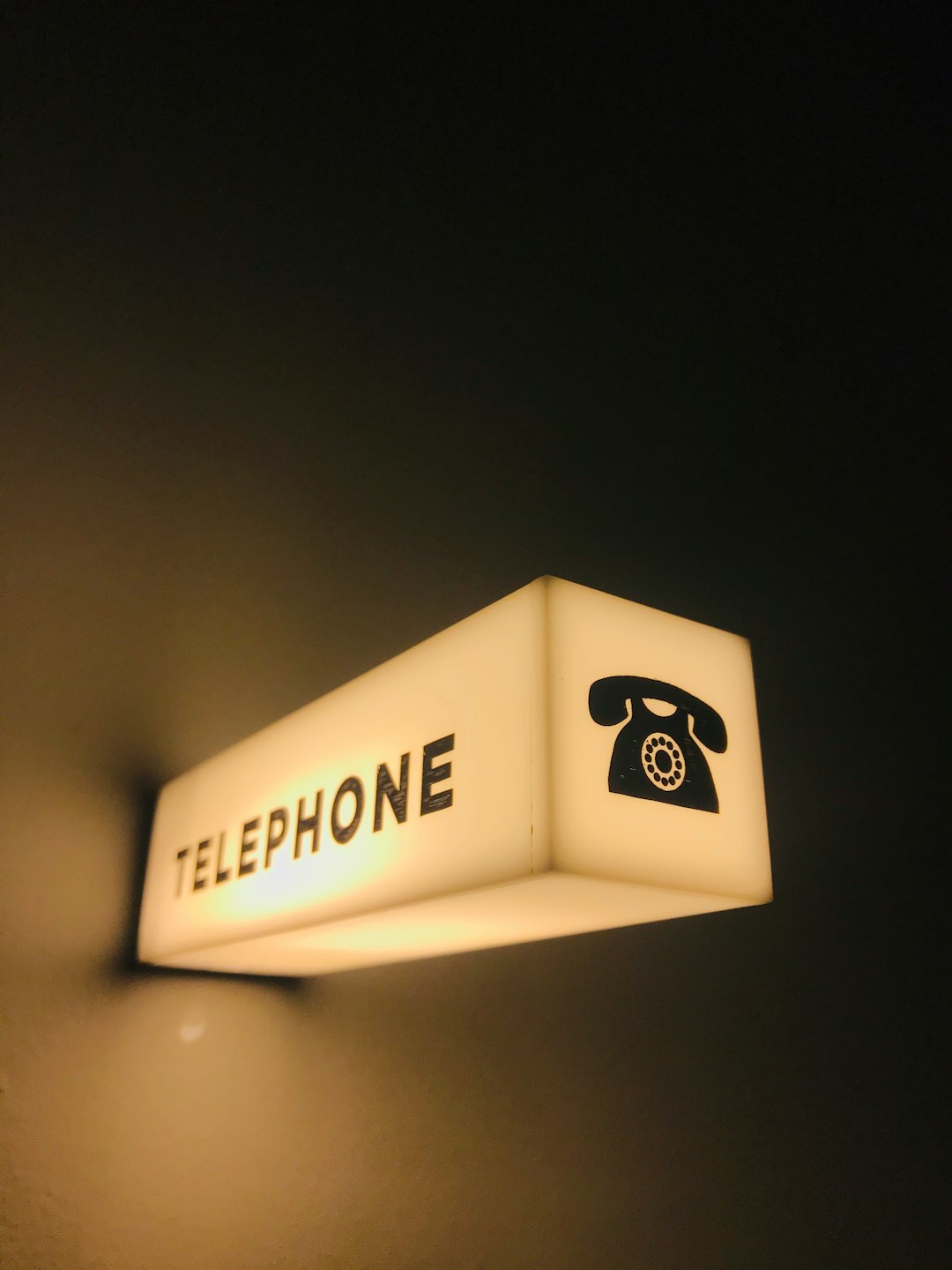- Understanding Robocall Harassment in Maryland: A Consumer's Guide
- Legal Protections Against Unwanted Robocalls in Maryland
- The Role of Do Not Call Lists and Their Effectiveness
- How to File a Complaint Against Robocallers in Maryland
- Selecting the Right Lawyer for Robocall Harassment Cases in MD
- Common Tactics Used by Robocall Scammers Targeting Maryland Residents
- The Impact of Robocalls on Mental Health and Legal Recourse
- Preventative Measures: Safeguarding Your Phone Number from Robocalls
Understanding Robocall Harassment in Maryland: A Consumer's Guide
In Maryland, robocall harassment has become a growing concern among consumers, leading many to seek relief and protection. Robocalls, or automated telephone calls, are often used by telemarketers and scammers to make unsolicited contact with individuals. While some robocalls may be legitimate, others can be invasive and illegal, especially when they persist despite requests to stop. In Maryland, consumers have rights and legal options available to combat this issue.
Understanding the nature of robocall harassment is essential for Maryland residents. These automated calls often violate consumer privacy laws and can include marketing messages, debt collection attempts, or even fraudulent schemes. If you are receiving unwanted robocalls, particularly from unknown numbers, it’s advisable to take action. Engaging a do not call lawyer or consulting with robocall attorneys in Maryland can help you understand your legal standing and explore options like blocking calls, filing complaints, or taking legal action against persistent violators. Robocall law firms specializing in consumer protection can also assist in navigating these issues and ensuring your rights are upheld.
Legal Protections Against Unwanted Robocalls in Maryland
In Maryland, consumers are protected from illegal robocall harassment thanks to stringent regulations implemented by state and federal laws. The Telephone Consumer Protection Act (TCPA) serves as a powerful tool against unwanted automated calls, including robocalls. This federal law prohibits telemarketers from making calls using an Automated Dialing System (ATS) or prerecorded messages without prior express consent from the recipient. Furthermore, Maryland has its own Do Not Call Law, which complements the TCPA by offering additional safeguards to residents who wish to limit marketing calls.
Consumers in Maryland can take several steps to protect themselves from robocalls. One effective measure is registering their phone numbers on the state’s Do Not Call Registry. Additionally, engaging the services of a reputable do not call lawyer or robocall attorney in Maryland can be immensely helpful. Such legal professionals specialize in navigating complex regulations and helping victims recover damages resulting from harassing robocalls. Furthermore, reporting incessant robocalls to the Federal Trade Commission (FTC) and local law enforcement agencies is crucial in combating this growing nuisance.
The Role of Do Not Call Lists and Their Effectiveness
In an era where technology facilitates unprecedented communication, it’s become increasingly challenging to shield consumers from unwanted phone calls, particularly those originating from robocalls. However, one of the most effective tools available is the Do Not Call list. In Maryland, residents can register their numbers with the Do Not Call Lawyer Maryland or Do Not Call Attorney Maryland to prevent automated telemarketing calls from flooding their phones. This initiative, overseen by the Do Not Call law firm Maryland, offers a legal framework that empowers individuals to take control of their communication preferences.
The effectiveness of these lists lies in their ability to establish clear boundaries. Once registered, robocall attorneys Maryland and robocall law firms Maryland are legally prohibited from calling enrolled numbers, unless the caller has explicit permission. This not only reduces the frequency of harassing calls but also provides a sense of security and peace for consumers. For those dealing with relentless robocalls, seeking legal counsel from a lawyer for robocall Maryland can help navigate these regulations and ensure compliance while protecting rights.
How to File a Complaint Against Robocallers in Maryland
If you’re experiencing harassment from robocalls in Maryland, knowing how to file a complaint is essential. The first step is to identify the caller. Check your call display for any information about the caller’s phone number or name. If it’s a known robocaller, you can take immediate action.
In Maryland, you can file a complaint against unwanted robocalls with the Attorney General’s Office. Contact them via their website or by calling their consumer protection division. Provide detailed information about the calls, including the caller’s number, frequency of calls, and any specific messages that raise concerns. Additionally, consider reaching out to a Do Not Call Lawyer or robocall attorneys in Maryland for legal advice on how to proceed, especially if you believe your privacy rights have been violated. Reputable do not call law firms in Maryland can assist with filing formal complaints and exploring potential legal remedies against persistent robocallers.
Selecting the Right Lawyer for Robocall Harassment Cases in MD
When pursuing legal action against robocall harassment in Maryland, choosing the right legal counsel is a crucial step. It’s essential to find a do not call lawyer or robocall attorney who specialises in telecommunications law and has a proven track record handling similar cases. Look for a reputable do not call law firm with experience navigating the complex legal landscape surrounding unwanted automated calls.
Consider attorneys who offer a free consultation and have a clear understanding of the consumer protection laws in Maryland, such as the Telephone Consumer Protection Act (TCPA). A skilled robocall law firm should be able to provide strategic guidance, effectively communicate your case, and advocate for your rights against these intrusive calls.
Common Tactics Used by Robocall Scammers Targeting Maryland Residents
Robocall scammers in Maryland often employ sophisticated and aggressive tactics to target residents. One common method is impersonating government agencies or reputable organizations, claiming there’s a legal issue that requires immediate attention. They may demand personal information or threaten consequences, such as arrest or fines, urging victims to act swiftly.
Another prevalent tactic involves pre-recorded messages from robocall attorneys or law firms Maryland pretending to represent a client with a legal matter. These calls often claim the recipient has been involved in a lawsuit or owes money and demands immediate payment. Scammers may even threaten legal action if the victim doesn’t comply, using fear to manipulate their targets. Some also use dynamic number insertion, making it seem like the call is coming from a local number, increasing the likelihood of success.
The Impact of Robocalls on Mental Health and Legal Recourse
Robocalls, while a common marketing strategy, have evolved into a distressing method of harassment, particularly when they invade personal space and disrupt mental peace. The sheer volume of automated calls can lead to increased stress, anxiety, and even depression among recipients. Many Maryland residents find themselves bombarded with unwanted messages from telemarketers, scammers, or collection agencies, often posing as legitimate organizations. This relentless intrusion into private life takes a toll on mental health, especially in vulnerable populations like the elderly or individuals already dealing with psychological conditions.
In such cases, legal recourse is available for Maryland citizens to protect themselves. Seeking the assistance of a specialized lawyer or law firm experienced in handling robocall-related issues is a crucial step. A “Do Not Call” attorney in Maryland can help enforce telephone consumer protection laws and hold offenders accountable. Robocall attorneys and law firms across the state offer services to block these calls, educate individuals on their rights, and seek compensation for any damages incurred due to harassment. For those facing persistent robocalls, it’s advisable to consult a legal professional who can guide them through available options, ensuring peace of mind and a safer digital environment.
Preventative Measures: Safeguarding Your Phone Number from Robocalls
To protect yourself from robocalls in Maryland, consider taking proactive measures to safeguard your phone number. One effective step is to register your number on the National Do Not Call Registry. This federal list restricts telemarketers from calling your number, offering a significant barrier against unwanted calls.
Additionally, avoid listing your phone number publicly online or in directories. Many robocallers scour these sources for new contacts. You can also install call-blocking apps or purchase privacy-focused phone plans that offer enhanced filtering and protection against automated calls. For extra security, consult with a lawyer specializing in robocall cases in Maryland (Do not call lawyer Maryland, robocall attorneys Maryland). They can provide tailored advice and ensure your rights are protected, especially if you’ve been a victim of persistent or malicious robocalls from law firms (Do not call law firm Maryland) or lawyers (Do not call lawyers Maryland).






